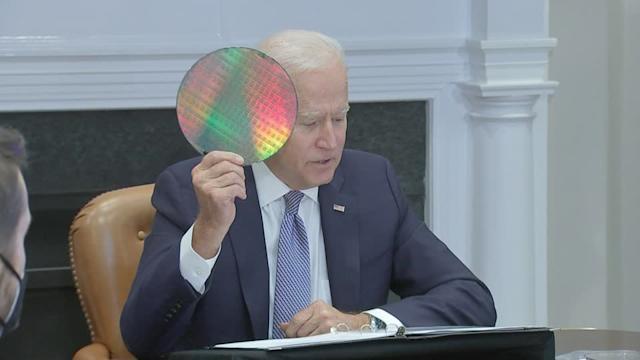On Friday, the Biden administration released final regulations that would prevent chip companies from using federal funds for certain business expansions, partnerships, and research in China. These rules aim to safeguard U.S. national security and prevent the transfer of technology or benefits to China.

These restrictions come as the Biden administration plans to distribute over $52 billion in federal grants and significant tax credits to bolster the U.S. chip industry. The regulations prohibit chip makers benefiting from these funds from building chip factories outside the United States. Additionally, companies cannot significantly expand semiconductor manufacturing in "foreign countries of concern," which include China, Iran, Russia, and North Korea, for ten years after receiving funding.
The rules also prohibit companies from engaging in specific joint research projects or licensing technology that would raise national security concerns in the aforementioned countries. The Commerce Department indicated that if a company violated these restrictions, the government could reclaim the entire award.
The chip industry, which earns around one-third of its revenue from China, has lobbied heavily regarding these restrictions. Chip makers raised concerns that overly stringent rules could disrupt supply chains and hinder their global competitiveness.
While many of the broad principles of these rules were outlined in the bipartisan legislation authorizing funding for the chip sector, the Commerce Department was responsible for crafting the detailed provisions. In the final regulations, the department considered the perspective of chip makers and made several changes in response to their feedback. One notable change was eliminating the specific dollar threshold for transactions expanding chip companies' manufacturing capacity in China, Russia, North Korea, or Iran.
The Commerce Department ultimately adopted a standard proposed by companies like Taiwan Semiconductor Manufacturing Company, which suggested monitoring the physical expansion of semiconductor factories. It remains to be seen if any of these changes will receive backlash from Republicans on Capitol Hill, who have critiqued the Biden administration's perceived leniency towards China.
Commerce Department officials stated that while they received requests from the industry to relax certain guidelines, they maintained or strengthened provisions as necessary to safeguard national security. The goal of the program, according to officials, is to have companies successfully operating in the U.S., and the department aims to work with companies to ensure effective execution of U.S. grants.







